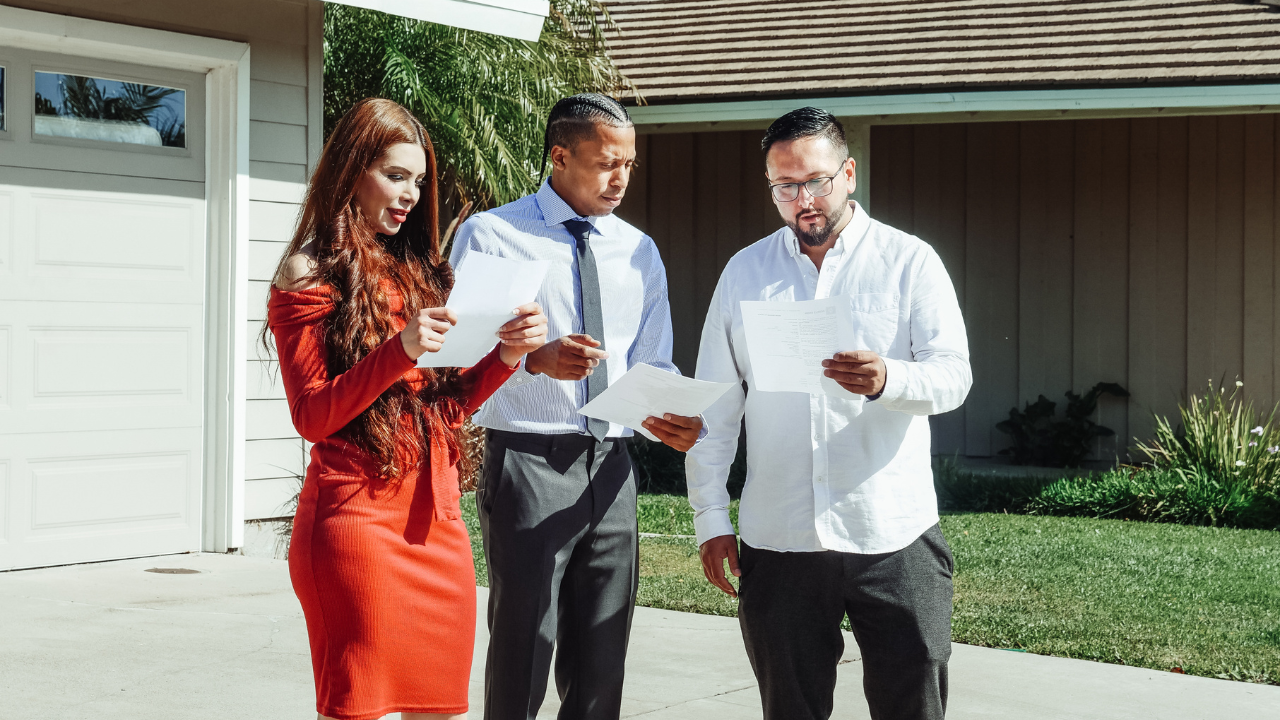What First-Time Buyers Should Know About Down Payments
Marilyn Archer • July 15, 2025

Buying your first home is an exciting milestone, but the process can feel overwhelming especially when it comes to understanding down payments. One of the most common misconceptions among first-time homebuyers is that a 20% down payment is required to buy a home. While a larger down payment has its advantages, there are multiple options available, including low-down-payment and no-down-payment loan programs.
In this article, we’ll break down what a down payment is, how much you really need, how it affects your mortgage terms, and strategies for saving for one.
1. What Is a Down Payment and Why Does It Matter?
A down payment is the upfront amount you contribute toward purchasing a home. This payment represents a percentage of the home’s total price, with the rest being covered by a mortgage loan.
Why Is a Down Payment Important?
- Reduces the Loan Amount: The larger your down payment, the less you need to borrow.
- Affects Loan-to-Value (LTV) Ratio: A lower LTV ratio can result in better mortgage terms.
- Impacts Monthly Mortgage Payments: A higher down payment reduces your monthly principal and interest.
- Determines the Need for Private Mortgage Insurance (PMI): If your down payment is below 20%, most lenders require PMI.
A well-planned down payment can save you thousands over the life of your loan.
2. How Much Do First-Time Homebuyers Need for a Down Payment
Contrary to popular belief, first-time homebuyers don’t need a full 20% down payment. Depending on the type of loan, the required down payment can be as low as
3% or even 0% .
Common Down Payment Requirement by Loan Type
| Loan Type | Minimum Down Payment | Best Credit |
|---|---|---|
| Conventional Loan | 3% - 20% | Buyers with good cedit |
| FHA Loan | 3.5% | Buyers with lower credit scores |
| VA Loan | 0% | Eligible military service members |
| USA Loan | 0% | Rural and suburban homebuyers |
Example Down Payment Amounts:
| Home Price | 3% Down | 3.5% Down | 5% Down | 10% Down | 20% Down |
|---|---|---|---|---|---|
| $200,000 | $6,000 | $7,000 | $10,000 | $20,000 | $40,000 |
| $300,000 | $9,000 | $10,500 | $15,000 | $30,000 | $60,000 |
| $400,000 | $12,000 | $14,000 | $20,000 | $40,000 |
3. How Your Down Payment Affects Your Mortgage Terms
Your down payment amount influences several key aspects of your mortgage, including:
Loan-to-Value (LTV) Ratio
- LTV ratio = Loan Amount / Home Price
- A lower LTV ratio means lower risk for lenders, which can lead to better loan terms.
Private Mortgage Insurance (PMI)
- Required for down payments under 20%.
- Costs 0.5% to 1% of the loan annually.
- Can be removed once you reach 20% equity.
Interest Rates
- Larger down payments often lead to lower interest rates.
- Lenders see larger down payments as a sign of financial stability.
4. Where Can First-Time Buyers Get Their Down Payment Funds?
Many buyers wonder how they can come up with a down payment. Fortunately, there are multiple sources to consider:
1. Personal Savings
- Open a dedicated down payment savings account.
- Automate monthly deposits.
- Reduce discretionary spending.
2. Gifts from Family
- Many loan programs allow gifted funds.
- Must provide a gift letter to verify the source.
3. Down Payment Assistance Programs
- State and local grants.
- Nonprofit programs.
- Employer homebuyer assistance.
4. Retirement Accounts
- First-time buyers can withdraw up to $10,000 from an IRA without penalty.
401(k) loans may be an option, but they have risks.
5. The Pros and Cons of a Larger vs. Smaller Down Payment
Larger Down Payment (10-20% or More)
Pros:
- Lower monthly payments
- Avoid PMI
- Access to better mortgage rates
- More home equity upfront
Cons:
- Requires more upfront cash
- Could delay homeownership while saving
Smaller Down Payment (3-5%)
Pros:
- Requires less upfront cash
- Allows for faster homeownership
- Keeps more cash available for other expenses
Cons:
- Higher monthly mortgage payments
- May require PMI
- Potentially higher interest rates
6. Down Payment Myths and Misconceptions
Let’s clear up some common myths:
| Myth | Reality |
|---|---|
| ❌ Myth #1: You Need 20% Down to Buy a Home. | ✅ Reality: Many loans allow down payments as low as 3% or even 0%. |
| ❌ Myth #2: A Smaller Down Payment Means You Can’t Afford a Home. | ✅ Reality: With a solid financial plan, even a low-down-payment mortgage can be a smart choice. |
| ❌ Myth #3: Down Payment Assistance Is Only for Low-Income Buyers. | ✅ Reality: Many programs are available for moderate-income buyers as well. |
7. Steps to Save for a Down Payment
Here are practical steps to build your savings:
- Set a Target Goal – Determine how much you need.
- Cut Unnecessary Expenses – Reduce dining out, subscriptions, and impulse purchases.
- Boost Your Income – Consider a side hustle, freelance work, or selling items you don’t need.
- Automate Savings – Set up automatic transfers to a dedicated down payment fund.
- Look for Employer Assistance – Some companies offer homebuying benefits.
8. First-Time Buyer Programs That Help with Down Payments
Several programs are designed to assist first-time homebuyers with their down payments:
- FHA Loans: 3.5% down payment with flexible credit requirements.
- VA Loans: 0% down for eligible military members.
- USDA Loans: 0% down for rural buyers.
- State & Local Programs: Grants, forgivable loans, and tax credits.
🔑Recap
Understanding down payments is a key step to confident homeownership. Whether you start small or save big, knowing your options gives you control. By reviewing your budget, setting a realistic goal, exploring assistance programs, and talking with a lender about your loan choices, you can create a clear plan for success. Every dollar saved brings you closer to your dream, so take action today and lay the foundation for your new home. Smart choices lead to bright futures—happy house hunting! 🏡
